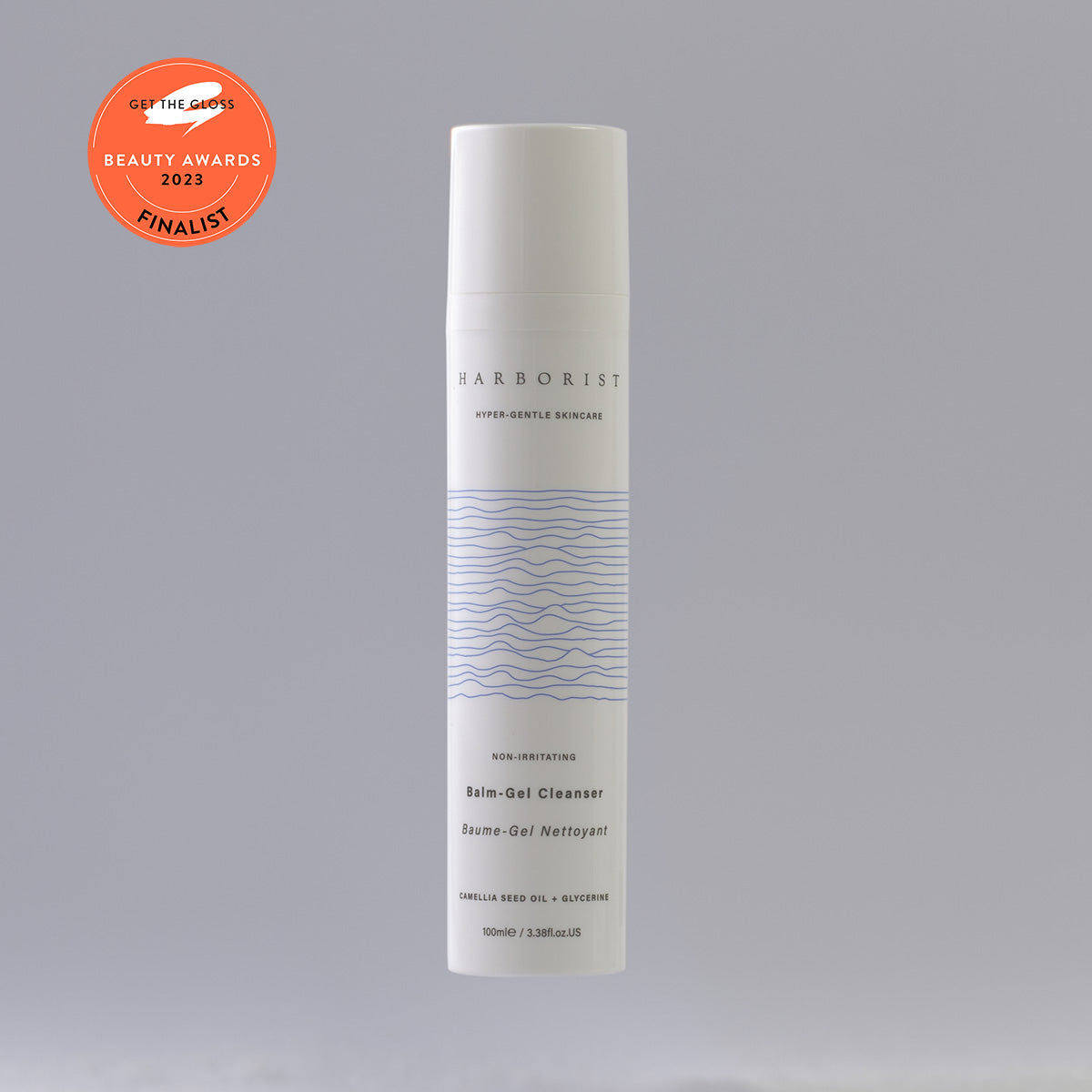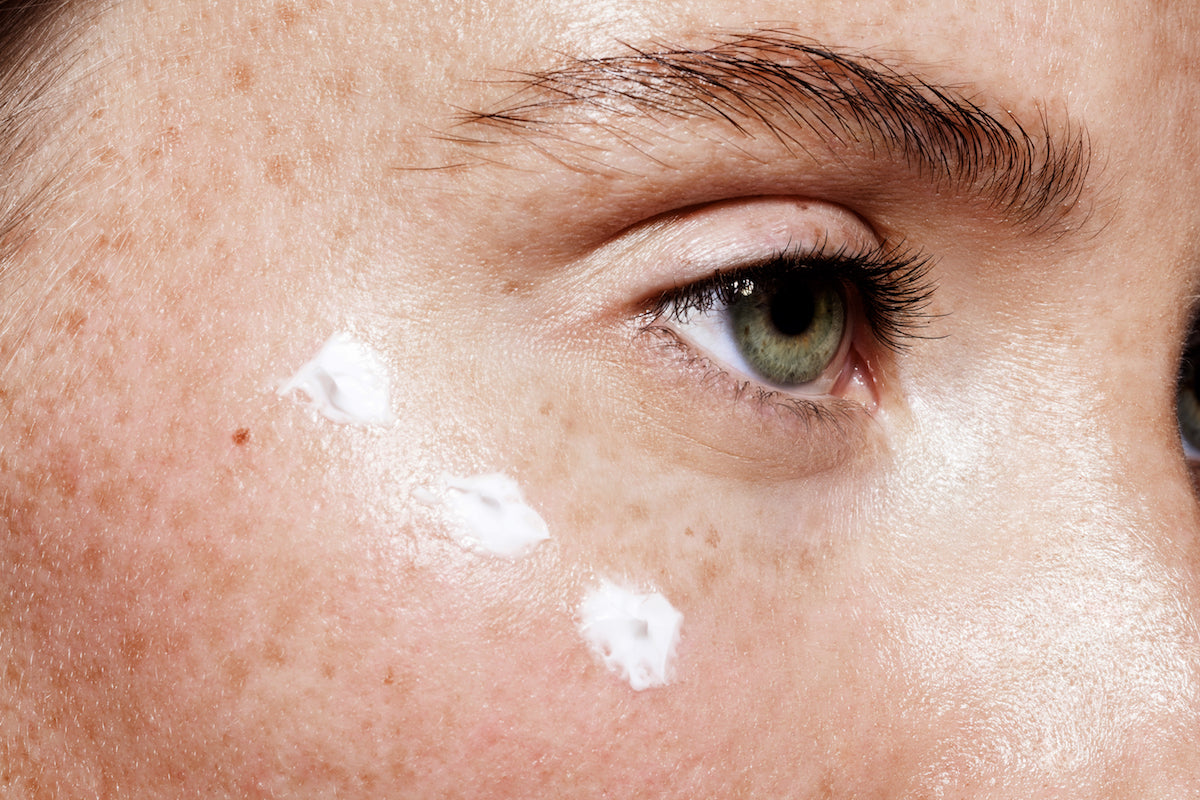40% of people worldwide describe their skin as sensitive.
It's a number which has grown in recent years, making for sensitive skin an attractive marketing claim.
But for many, the bar for that claim isn't high enough.
If your skin is prone to uncomfortable sensations or reactions, here are three things that your skincare needs to address.
Irritation from skincare products.
If a product is irritating your skin, you may notice signs of it after the first use, or it could take a few weeks before the effect has accumulated enough to show up.
In the EU, a qualified scientist assesses current raw ingredient data, taking into account the amount used, formulation and current data, to produce a safety report for each formula. This flags up if there may be a higher chance of an irritant reaction from using the product.
However, recent studies indicate that some of the raw material data that's based on may not take work as well at the lower end of the spectrum, between mild irritant and non-irritant. If your skin is easily irritated, this is important to you.
Who is creating the products is important too - cosmetic scientists tend to differ in their areas of expertise, so creating a product with super low irritation potential requires working with the right one(s). There are all kinds of ingredient nuances, and scientists with the right experience can help to uncover these.
Claims like suitable for sensitive skin and dermatologically tested are quite unreliable at letting you know how likely a product is to cause a reaction. This is where specialist sensitive skin brands are your best bet, and why the French Pharmacy brands are so reliable. Because their target audience are people with reactive skin, you know that they will have to really get into the details of the formulation to make sure their products can be tolerated by as many of their potential customers as possible.
Your skin barrier needs repairing
A disrupted barrier means ingredients may be getting access to parts of your skin they shouldn't! This can mean skincare which you don't typically have a problem with starts to cause discomfort and irritation. It may be that you've used too many active products like AHA's or retinol, and you need to dial it back. But it's not just hero ingredients that can cause a disrupted barrier, others can too, depending on the formulation.
It could also be that you're more susceptible to a disrupted barrier, perhaps due to genetics, environment or hormones.
Either way, this is why skincare specifically for sensitive skin should not just do no harm; it should actively support your skin barrier. This isn't just about adding barrier friendly actives - instead it should be built into the heart of the formula, from the hero ingredients to the lesser know, 'boring' ones. Any one of them can influence how that skincare product interacts with your skin.
You're allergic to your skincare
Cosmetic contact allergies are talked about less frequently than irritation, yet fragrance allergy alone is thought to occur in up to around 3-5% of the population¹. If you've ever had eczema, you're even more susceptible.
Allergies can develop at any time, meaning you could use a product for years without issue before a problem arises. It could be to one of the EU listed fragrance allergens, or if you're unlucky, it could be to something less common which isn't included in that list. This earlier post has more detailed information about contact allergies if you'd like to know more.
To the untrained eye, it can be hard to differentiate between irritation and an allergic reaction. They're not the same, and just because an ingredient is allergenic, doesn't make it an irritant, and vice versa. Think of peanut butter - a perfectly fine food for most but not for those with an allergy.
Allergic reactions can vary from dry eczema-like patches, which could be mistaken for dry skin, to more obvious inflammation and itching. This is why if you frequently react to products, it's best to speak your GP or doctor about getting patch tested, so you can find out what's going on. This is important as continuing to use products you're allergic to risks priming your immune system for a stronger reaction.
It's not possible to eliminate the chance of allergic reaction - if you look hard enough you'll find reports of allergy to almost anything. At the minimum, low allergy skincare shouldn't contain common fragrance allergens, and ideally, all ingredients should be considered for their allergenic potential.
At Harborist, we think it's really important to cover all three of these triggers. While it doesn't guarantee you won't experience a reaction, it means you can feel secure in knowing that your skincare was created with the right amount of care.
It should be noted that if you're experiencing lots of problems with your skin, it's always best to underlying medical causes, such as rosacea, which will need specific treatment and care.
I hope that gives you some clarity - get in touch if you have any questions!
Kate
¹ Prevalence of contact allergy in the general population: A systematic review and meta-analysis. Alinaghi F, et al. Contact Dermatitis. 2019. PMID: 30370565


